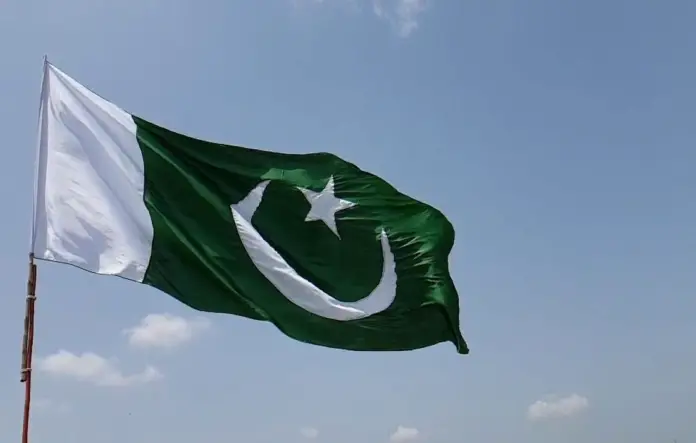March 23 holds great significance for Pakistan. On this date in 1940, history was made when the subcontinent’s politics took a new turn, reaching a point when the later called ‘Pakistan Resolution’ was passed. It gave the Muslims of the subcontinent a new goal and a new purpose to follow and struggle for. It called for constitutional guarantees for the protection of the separate Muslim identity and thus laid the foundations of the Two Nation Theory.
The journey for independence was thus embarked upon on this date under the leadership of Quaid-e-Azam. He put forth the demand for a separate country for the Muslims, based on the concept of nationhood. It is because he knew that the Hindus and the Muslims were two distinct nations with different civilizations that can never co-exist. Jinnah, who pursued the dream of a separate country from this date, was aware of the fact that Muslims cannot live their lives in accordance with their religion in an independent India with a Hindu majority, being ruled by the Congress.
Jinnah thus rebuffed the claims and aspirations of Congress that it was the sole representative of the whole of the Indian population, and emerged as the sole representative of the Muslim population. So, the decision made on 23rd March was a crucial one which the Muslims supported wholeheartedly. Moreover, another significance of this date is when the Dominion of Pakistan was transformed into an Islamic Republic.
On 23rd March, 1956, Pakistan’s first constitution was implemented that was approved by the second Constituent Assembly. It declared Pakistan to be an Islamic Republic with features of democracy, and a parliamentary form of a government. Pakistan thus came into being providing a secure and a promising political, economic, social, cultural future to the Muslims, and providing them the way to live their lives in accordance with the principles of Islam. The struggle for independence that ended on 14th August, 1947 remains indebted to the Pakistan Resolution passed on 23rd March, 1940.
The worsening situation in India under Narendra Modi endorses the fears and approves Jinnah’s farsightedness for a separate homeland for the Muslims of the subcontinent. The demand of a separate homeland put forth by Jinnah is now proving right in India with the increased persecution of the Indian Muslims at the hands of the ultranationalist Hindutva-led Modi government.
The Citizenship Amendment Act (CAA) has proven Jinnah right about why the Muslims of subcontinent needed a separate country. Fatefully, Congress member Shashi Tharoor blatantly stated that CAA will be a victory of thought of Jinnah over Gandhi. CAA aims for providing citizenship to the non-Muslim minorities of Sikhs, Jains, Parsis, Christians, Buddhists and Hindus from the Muslim majority Bangladesh, Afghanistan and Pakistan; conveniently excluding Muslims, thus labelling them as infiltrators.
It was Jinnah who dreamed for such a country where all the citizens shall enjoy equal fundamental rights, thus stating “you are free; you are free to go to your temples, you are free to your mosques or to any other place of worship in this State of Pakistan. You may belong to any religion or cast or creed – that has nothing to do with the business of the state”. Under the so-called inclusive constitution of India, Muslims have been degraded to the status of second-class citizens. The secular India, its constitution and its democratic nature is under assault by the Narendra Modi-led government. It is the BJP and Hindutva-based India where the Muslims are being faced with an existential crisis. Their religion, identity, and nationhood are under threat from the radical Hindutva followers.
The fears that the Muslims of the subcontinent faced some 80 years ago now haunts the Indian Muslims again. The crippling situation in India ratifies and reaffirms the wisdom of Jinnah when he addressed the Lahore Session of the All India Muslim League in March, 1940 stating, “To yoke together two such nations under a single state, one as a numerical minority and the other as a majority, must lead to growing discontent and the final destruction of any fabric that may be so built for the government of such a state.”
In recent times, attempts have been made by India to destabilize peace in the South Asia region. It has been pursuing provocative actions to bully its neighbours, especially Pakistan, but the professional excellence of our armed forces and highly motivated Pakistani nation always foil such Indian efforts. With its unremitting vigilance and professional competence, Pakistan Navy has recently once again surprised the Indian Navy by detecting and blocking its submarine from entering into Pakistani waters on March 1, 2022. It was the fourth incident of its kind wherein, an Indian naval submarine has been prematurely detected and tracked by Pakistan Navy’s long-range maritime patrol aircraft.
This great feat is a testament of the Pakistan Navy’s operational preparedness, high morale, and exceptionally superior professional skills at sea. Though, the Indian Navy is numerically superior but it consistently blurs the reality while trying to test Pakistan Navy’s ability at sea.
To sum up, each year, 23rd March recalls the struggle and pledge that Muslims of the subcontinent made for independence, under the leadership of Quaid-e-Azam. On this date, we should cement the spirit, integrity and dedication needed for the prosperity of Pakistan.
It is the need of the hour to make the new generations aware about the struggle of the Muslims for a separate homeland, to consolidate their separate identity. So, the Pakistan resolution should be upheld. It should be held in reverence and be cherished forever where Jinnah put forward the demand that is being endorsed today as the situation in India worsens for the Muslims.







